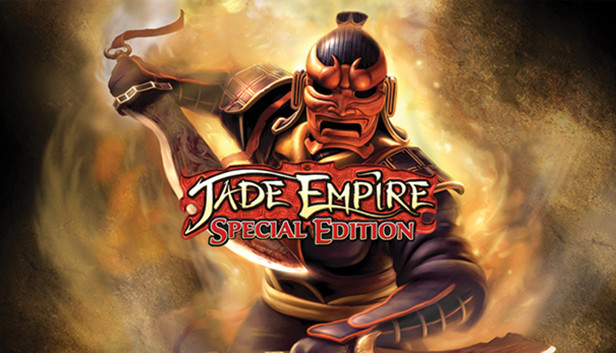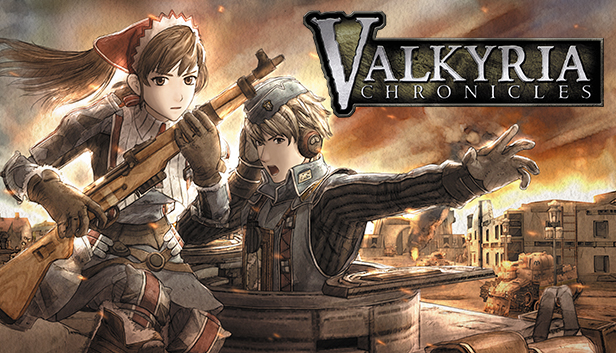1. Rogue Galaxy
Platform: PlayStation 2
Overview: Developed by Level-5, Rogue Galaxy is an action RPG that follows Jaster Rogue, a young adventurer drawn into a galaxy-spanning quest. The game features real-time combat, a compelling storyline, and vibrant visuals.
This game took me 3 or 4 separate tries to really get into. You have to be willing to really learn the battle system, which is VERY similar to Kingdom Hearts in many ways. If you are looking for a fully realized / encapsulated story with deep lore, especially considering this is a standalone game. I have seen a few American people bitch and moan about the battles getting repetitive, but this leans slightly into JRPG territory regarding grinding — I don’t mind grinding if the incentives are there, which leads me to something Rogue Galaxy calls the “Revelation System”. This is how you level your character, and is super fucking unique — you level by piecing together a variety of materials throughout your travels, which makes grinding interesting and worth it.
I have exactly two beefs with this game: 1. there is no fucking way to know what you goddamn objective is!!!! I had to step away for a few weeks, and when I came back to it I forgot my exact objective…there was no way for me to determine this other than by talking to all the NPCs on my ship. This is a testament to an older generation of games that didn’t try to optimize your time-played e.g. the Spiderman games / Sonic Frontiers that are just robotic collect-a-thons. That being said, a simple way to know your main / side objective would’ve been great…next time?
My other beef, is that, while the character art holds up, and the general theme of the worlds hold up, i found some of the dungeons to be particularly bland — especially one in particular, in chapter 8 out of 10, has you going up these two towers called the Gladius Towers. I found the colors in this level design to be completely monotone, in an otherwise really varied thematic experience — the problem is you spend like maybe 4 hours+ in this dungeon alone if you are going for a 100%-run, so it really burned me out on this part of the experience. Pretty much everything up until that point is interesting, and everything after it as well. Even the bosses in those towers are good — I just thought this part of the game was underdeveloped considering what felt like an overdeveloped experience over all.
Anyways, just play this shit. I played on PS2, PS5 via the PS Store, and also on my Retroid using NetherSX and OpenGL.

2. Jade Empire
Platform: Xbox, PC
Overview: Developed by BioWare, Jade Empire is an action RPG that takes place in a mythical version of ancient China, where you play as a martial artist destined to stop an evil empire. The game features real-time combat, a unique morality system, and multiple fighting styles that let you approach battles in completely different ways.
Okay, first off, let’s just acknowledge that Jade Empire is weird. BioWare was fresh off of Knights of the Old Republic when they made this, and instead of playing it safe with another Star Wars RPG, they went full Wuxia fantasy. The result? A game that feels part RPG, part martial arts film, and part mythological fever dream. The world is drenched in ancient Chinese mysticism, and even though it leans into fantasy, it has a level of atmosphere and depth that makes you believe this universe is real.
The combat system still holds up. Unlike most RPGs that force you into turn-based battles or awkward real-time combat, Jade Empire is all about fluidity. You switch between different fighting styles mid-combat, from bare-knuckle martial arts to magic, weapon techniques, and even transformations into supernatural creatures. The game expects you to actually learn its combat, which makes it way more engaging than just mashing buttons. It’s basically an RPG that lets you feel like you’re starring in a classic kung-fu movie, and that alone makes it special.
Jade Empire has a “morality” sytem kind of like KOTOR, Open Palm vs. Closed Fist philosophy. It’s NOT just good vs. evil—it’s more like harmony vs. dominance. The game actually rewards you for playing into either path rather than just punishing you for not being a saint. That being said, if you go full Closed Fist, you’re basically a power-hungry asshole, but hey, some people like that.
The game is short. You can finish Jade Empire in like 15-20 hours, which for a BioWare RPG is unheard of. The pacing is a little rushed toward the end, like they wanted to make something way bigger but ran out of time. Also, while the world is visually stunning, it feels a little empty at times—I wanted more side content, more cities, just more.
If you love RPGs but want something totally different from your usual medieval fantasy or sci-fi epic, this game deserves your time.

3. Valkyria Chronicles
Platform: PlayStation 3, PC
Overview: Sega’s Valkyria Chronicles is a tactical RPG that blends turn-based strategy, real-time movement, and a watercolor-inspired art style to create one of the most unique RPG experiences of its time. Set in an alternate version of Europe during a fictional World War II, you lead a ragtag militia squad against a brutal imperial invasion.
This game took me completely by surprise. At first glance, it looks like just another tactics game, but the BLiTZ battle system (think XCOM meets real-time action) is a total game-changer. Instead of the usual grid-based movement, you physically control each soldier, aiming their shots in real time. It’s immersive, and when you screw up positioning, you feel it immediately—your mistakes cost lives, not just HP.
The cast? Phenomenal. You start with standard archetypes—the stoic leader, the best friend, the love interest—but the game makes you care about them. The way Valkyria Chronicles handles permadeath isn’t as harsh as Fire Emblem, but if you let a squad member fall and don’t rescue them in time? They’re gone forever. And some of these characters have entire subplots you might never see if you let them die.
Let’s talk about the art style. This game looks like a watercolor painting in motion, and it still holds up today. Unlike some RPGs that lean into hyper-realism and end up looking dated, this game’s painterly aesthetic is timeless.
My complaints? Sometimes the difficulty spikes out of nowhere—there are missions where you’re just steamrolling through, and then BAM, you’re fighting a tank the size of a small city with almost no cover. Also, the story—while strong—leans into a bit of anime melodrama at times, but hey, I’ll take that over another soulless military shooter.
Final thoughts? Valkyria Chronicles is one of the most overlooked RPGs of its time. If you love strategy, character-driven stories, and tactical combat that actually makes you think, play this. No excuses.
4. Steambot Chronicles
Platform: PlayStation 2
Overview: Steambot Chronicles is an open-world RPG that plays like what would happen if someone mashed together Harvest Moon, Grand Theft Auto, and a mecha game in the best way possible. You play as a young amnesiac named Vanilla (yes, really) who wakes up on a beach and stumbles into a world filled with steampunk cities, customizable battle mechs (Trotmobiles), and a jazz band that you can actually join.
This game is way ahead of its time. While most RPGs from this era held your hand and forced you down a linear story path, Steambot Chronicles lets you do whatever the hell you want. You can be a hero, a criminal, a traveling musician, a merchant, or just some dude who builds the biggest, baddest mech in the land. The sheer amount of freedom this game gives you is insane for a 2005 release.
Let’s talk Trotmobiles, because these clunky, steam-powered mechs are the real stars of the show. The level of customization is nuts—you can change weapons, swap out parts, and even paint them different colors. The combat system isn’t the tightest (expect some jank), but once you get into it, piloting your Trotmobile feels like second nature. And yes, there are mech battles, and they get brutal if you’re not upgrading regularly.
The other half of this game? The music and social life. You can actually join a jazz band, play instruments yourself, and go on dates with multiple characters. It’s like Persona before Persona blew up, and the amount of random side activities makes the world feel alive.
Downsides? Oh yeah, there’s jank. The controls can feel clunky at times, and some of the pacing drags—especially when the story forces you into certain sections. Also, the graphics were never top-tier, but they have a weird charm to them.
Final thoughts? Steambot Chronicles is a hidden gem that deserves way more love. If you like sandbox RPGs, mechs, and player-driven storytelling, track this down and play it. Just be prepared to embrace the jank.
5. Deus Ex
Platform: PC, PlayStation 2
Overview: Deus Ex is a cyberpunk RPG-FPS hybrid that basically invented the immersive sim genre. You play as JC Denton, an augmented agent navigating a world of conspiracies, megacorporations, and government overreach in a vision of 2052 that somehow feels even more relevant today. This game doesn’t just let you play through a story—it lets you rewrite it based on your choices, playstyle, and curiosity.
Alright, let’s get this out of the way—this game is ugly as hell by today’s standards. The blocky models, stiff animations, and low-resolution textures aged like milk, but if you can get past that, Deus Ex is one of the smartest RPGs ever made. It doesn’t hold your hand. Every level is a giant sandbox where you decide how to proceed. Want to go in guns blazing? Sure. Prefer hacking security cameras and sneaking past guards? Go for it. Want to stack crates, crawl through a vent, and bypass everything? Knock yourself out.
The RPG elements run deep. You upgrade your character’s cybernetic enhancements (or “augmentations”), unlocking abilities that completely change how you approach problems. The writing is next level, filled with conspiracy theories that have only gotten more plausible over time—shadow governments, AI takeovers, corporate rule—it’s all here.
My biggest gripe? The gunplay is terrible at first because accuracy is tied to stats, so you’ll miss shots point-blankuntil you level up. The game also dumps you into a labyrinth of options with almost no direction, so first-time players might feel overwhelmed. And yeah, the voice acting is hilariously stiff at times (“What a shame”), but honestly? It just adds to the charm.
Final thoughts? Deus Ex is a masterpiece that demands patience. If you love games that reward experimentation, deep world-building, and actual consequences for your choices, play it now. Just install a few mods to make it less painful on the eyes.
6. Skies of Arcadia Legends
Platform: Dreamcast, GameCube
Overview: Skies of Arcadia is a pirate RPG, but in the sky. You play as Vyse, a Blue Rogue sky pirate, exploring floating islands, stealing from evil empires, and unraveling the mysteries of ancient civilizations. If JRPGs are about pure adventure, this one is peak escapism.
This game nails the feeling of exploration. You actually sail your airship, discovering new lands, recruiting crew members, and getting into massive ship-to-ship battles. Combat is turn-based but dynamic, with special moves, team attacks, and unique weapons for every character. And the world? Insanely creative—floating continents, hidden discoveries, secret cities—it feels alive.
The GameCube version (Legends) added quality-of-life improvements, less random battles, and extra content, making it the definitive edition.
Gripes? The random battles are still WAY too frequent, and some dungeons drag on forever. But if you can stomach the old-school grind, this game is legendary.
Final thoughts? One of the best RPGs ever made. If you love airships, sky pirates, and true adventure, play this masterpiece.
7. White Knight Chronicles
Platform: PlayStation 3
Overview: White Knight Chronicles tried to bring MMO-style RPG combat to a single-player experience, and while it didn’t revolutionize the genre, it’s a unique RPG that deserves more love. You play as Leonard, a guy who stumbles upon an ancient, massive suit of armor (the White Knight) and gets pulled into a war between kingdoms.
The game’s combat is a hybrid—it’s real-time, but there’s a command bar where you queue up actions, making it feel part MMORPG, part classic RPG. You customize your character with different classes and abilities, and once you unlock the White Knight transformation, battles take on a whole new level of spectacle.
The biggest draw? The online multiplayer, where you could create your own custom avatar and play co-op quests with friends. Sadly, the servers shut down, but the single-player experience is still worth it.
Downsides? The story is nothing special, and Leonard is a pretty generic protagonist. But the combat system, massive world, and Knight transformations make it stand out.
Final thoughts? If you like MMOs but want a single-player RPG with a unique twist, this is worth playing. Just be prepared for slow pacing.
8. Shin Megami Tensei: Nocturne
Platform: PlayStation 2, HD Remaster on PS4/Switch/PC
Overview: SMT Nocturne is the RPG equivalent of a brick to the face—but in a good way. This is a dark, apocalyptic RPG where you play as the Demi-Fiend, a teenager who survives the literal end of the world and gets transformed into a demon. Now, you roam a destroyed Tokyo, recruiting other demons, making brutal choices, and deciding the fate of existence.
First things first: this game is HARD. It’s not unfair, but it demands strategy. If you go into battle button-mashing, the game will punish you mercilessly. The Press Turn battle system makes every move count—hitting weaknesses gives you extra turns, missing takes them away. You have to actually think about what you’re doing, and that’s what makes it addicting.
The world-building is next level. There’s no real “good vs. evil” here—just different ideologies battling for dominance. Do you side with order and create a world of strict rules? Do you embrace chaos and let the strongest survive? Or do you forge your own path? The game gives you multiple endings based on your choices, and some of them are seriously messed up.
And then there’s Dante from Devil May Cry (yes, really). If you played the Maniax edition, he literally hunts you down like a badass anime villain, and if you’re tough enough, you can recruit him.
Downsides? The dungeon crawling can be brutal, and the random encounter rate is high. Also, the story is minimalist—don’t expect a lot of cutscenes holding your hand. You figure things out by exploring and talking to demons, which honestly makes it feel even more immersive.
Final thoughts? Nocturne is a brutal, atmospheric, and deeply rewarding RPG. If you love tactical combat, mythological lore, and high-stakes decision-making, play this immediately. Just be prepared to die. A lot.
9. Alpha Protocol
Platform: PlayStation 3, Xbox 360, PC
Overview: Alpha Protocol is basically Mass Effect meets James Bond, but with more broken mechanics and an absurd amount of choice-driven storytelling. You play as Michael Thorton, a rogue spy navigating a global conspiracy, deciding who to trust, who to betray, and how to shape the world.
This game isn’t polished, let’s get that out of the way. The gunplay feels janky, the enemy AI occasionally has the IQ of a potato, and the cover system sometimes forgets it’s a cover system. But if you can get past that, Alpha Protocol is one of the most reactive RPGs ever made. Every dialogue choice matters, and I mean actually matters—characters remember everything you do, and your reputation shapes the story in ways that make every playthrough unique.
You can play as a smooth-talking spy, a cold-blooded assassin, or a reckless action hero, and the game responds accordingly. The dialogue system is real-time, meaning you have seconds to decide how to respond—no sitting there contemplating your options for ten minutes like in other RPGs.
One of the coolest things? The way characters react to your actions. Make friends with a character in one mission, and they might save your ass later. Piss someone off? They will make your life hell. No two playthroughs ever play out the same.
The biggest downside? The combat. Stealth is broken, shooting feels inconsistent, and melee is somehow the best option. Also, the game never got a sequel, which is a crime because the concept deserved better.
Final thoughts? If you love choice-driven RPGs and can tolerate some jank, Alpha Protocol is a must-play. It’s messy, ambitious, and absolutely unique—and we’ll probably never see another game quite like it.
10. The Last Remnant
Platform: Xbox 360, PC, PS4 (Remastered)
Overview: The Last Remnant is Square Enix doing something completely different—instead of another traditional JRPG, they gave us a massive-scale, squad-based strategy RPG with a weird, unpredictable combat system and an insane amount of depth. It’s a game where you’re not just commanding one hero—you’re leading entire battalions into battle.
The combat system is wild. Instead of controlling individual characters, you control squads of units, issuing broad commands like “Attack aggressively” or “Hold back and heal.” The game then calculates outcomes based on AI behaviors, positioning, and hidden stats. It feels part RPG, part war simulator, and if you love tactical depth, this game has it in spades.
The world-building is incredible, too. The game’s world feels lived-in, with political intrigue, warring factions, and an overwhelming sense of scale. The lore goes deep, and if you invest in the story, you’ll find a complex, well-crafted narrative.
That being said, the learning curve is brutal. The game barely explains itself, and if you don’t understand how battle unions work, you’re gonna get wrecked. Also, the Xbox 360 version had awful technical issues, but the PC and PS4 remastered versions fix a lot of them.
Final thoughts? If you love tactical RPGs that reward patience and deep strategy, The Last Remnant is a hidden gem. Just be ready to struggle at first—this game doesn’t hold your hand.

